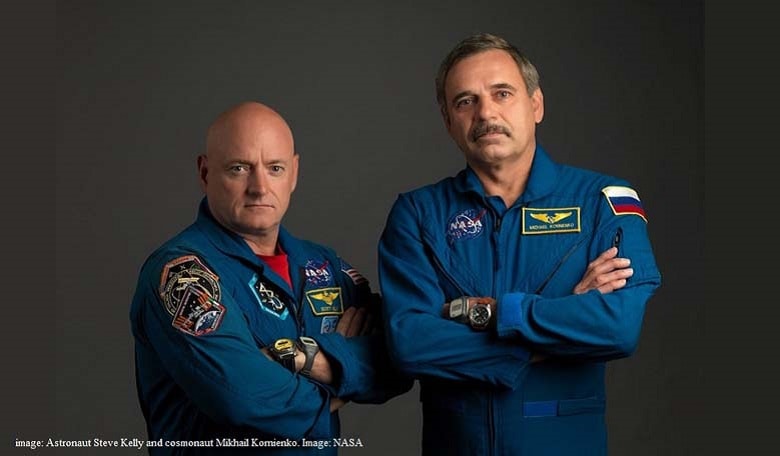On October 16, 2015, NASA’s Scott Kelly has officially set the American record for the longest cumulative time spent in space – 383 days and counting. On October 29th, Kelly is also set to break the record for the longest single spaceflight by a U.S. astronaut.
The Earth-wide record for the longest spaceflight is currently held by Russian cosmonaut Valeri Polyakov, who spent 437 consecutive days and 18 hours aboard the Mir space station in 1994-95.
This year, together with Russia’s Mikhail Kornienko, Kelly is participating in a one-year mission to study the effects of zero gravity, radiation, stressors, and the mere fact of being away from one’s home planet for so long. This mission is twice as long as typical U.S. missions to space.
It’s certainly a brave and bold undertaking, considering that the human body was designed by nature to survive in Earth’s gravity environment. A good summary of what we already know about the effects of long-term spaceflight can be found on the National Space Biomedical Research Institute’s website.
Yet as humanity continues to yearn for more space exploration – particularly when it comes to a manned mission to Mars – experiments such as the one Kelly and Kornienko are participating in become more and more important. After all, we will need more and more innovative technology that will offset the effects of long spaceflight should we ever hope to set foot on Mars to begin with, and Mars isn’t even that far away by our solar system standards.
As for Kelly himself, he is already encouraging his colleagues to beat his record as soon as possible:
Records are meant to be broken. Look fwd to one of my colleagues surpassing my end 500+ days on our #JourneyToMars! https://t.co/6SrbC8kIBP
— Scott Kelly (@StationCDRKelly) October 16, 2015










